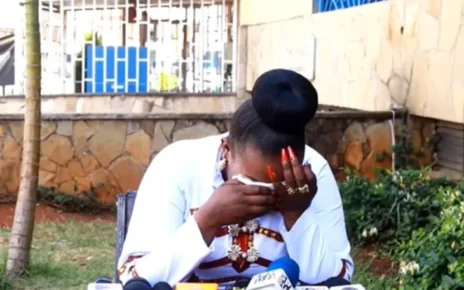Popular radio personality Maina Kageni, known for his candid and bold opinions, has once again stirred public conversation—this time about life after death. In a heartfelt and honest revelation, Maina disclosed his personal wishes regarding his funeral arrangements, advocating for cremation over traditional burial practices.
Speaking during his morning radio show on Classic 105, Maina didn’t hold back. “When I die, take me to Kariokor. Don’t waste money on me,” he said, referencing Kariokor Crematorium in Nairobi, one of the city’s few cremation facilities. His message was clear: he wants a simple, cost-effective send-off, and he believes more Kenyans should consider the same.
Cremation vs Traditional Burials: Maina’s Take
Maina expressed frustration over the extravagant funeral expenses many families endure after losing a loved one. From expensive coffins to elaborate ceremonies and costly burial plots, the financial burden can be overwhelming—especially for families already grappling with grief.
“We spend millions on funerals while people are struggling to afford food or school fees,” Maina noted. “Why should a coffin cost hundreds of thousands? Just cremate me and be done with it.”
His comments are part of a broader appeal to challenge cultural norms and rethink funeral traditions. He encouraged listeners to normalize cremation, emphasizing that it’s not only more affordable, but also environmentally conscious and efficient.
A Personal Choice—and a Bold Statement
While cremation is still relatively rare in Kenya, especially among certain religious and cultural communities, Maina’s outspoken support may help spark a national conversation. His platform reaches millions daily, and his willingness to speak openly about death—a topic often treated as taboo—shows a desire to normalize practical conversations around end-of-life choices.
By choosing Kariokor Crematorium, Maina joins a growing number of Kenyans who are opting for dignified, no-frills farewells.
Reactions from Kenyans
As expected, Maina’s remarks drew mixed reactions. Some praised his progressive stance and applauded his focus on saving families from financial stress. Others, however, were uncomfortable with the idea, citing cultural and religious beliefs that prioritize burial.
Regardless of differing opinions, one thing is certain: Maina Kageni has once again used his voice to ignite an important public dialogue.



